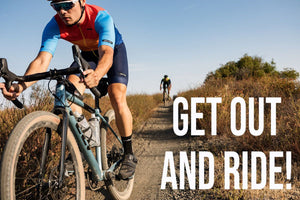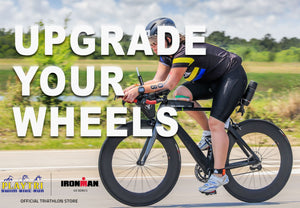
COACH RECOMMENDED TOOLS FOR ALL ATHLETES

TOOLS FOR ALL ATHLETES
As I coach I spend a great deal of time interacting with athletes. This includes face to face coffee time, time on the track, and going for swims and rides together. Of course, there is always a TON of interaction online. Unfortunately, it is not practical for me to be at every session with every athlete. This means that much of my coach-athlete relationship is built over a training platform. I look at their workouts and always look at the comments written by athletes. I think that how an athlete feels is as important as the data they provide. That being said, I do need the data to pair with their thoughts. I have a few tools that I love athletes to have in order to help us gauge effort, stress, and workouts.
Most working athletes do not consider the giant toll life stress plays on their workouts. Having athletes monitor their daily stress with a tool like the Vivosmart by Garmin is a massive value. The tracker lets us look at total stress from the day, sleep quality, and workout stress. We can use this to shape future workouts, plan around stressful days, and understand why workouts went a certain way. Athletes can be good at putting their head down and doing work, disregarding sleep and stress. This is great, until it isn’t. This tool can help athletes understand just how stressed or tired they are.

Getting the experts to check out my power meter!
The power meter is another must-have. Whether it is Garmin, Powertap, stages, or Sram, a power meter is a great tool to put a number to cycling efforts. Cycling has an extremely high amount of variability. Terrain, weather, wind, road surface, hills, groups and traffic all affect speed, duration, and/or distance. Power offers an objective tool that shows just how hard an athlete was working. Once we have established zones this is a very effective tool for writing workouts, gauging race efforts, and measuring fitness gains. An all-around essential!
“Adult-onset swimming” sounds like an affliction, and that is on purpose! Adults learning to swim need to take a different approach than children. Most children learn to swim without any gadgets. That is great, and I admire the purists. Children learn with a coach on deck and are much better “sponges” than adults. Tools like the Aqua Sphere Focus swim snorkel and buoyancy tools can be helpful. They take away various parts of the stroke so that you can focus on other parts. The snorkel cuts out breathing so that you can focus on your stroke. The buoyancy tools help you float so you can work on other aspects of the stroke.

Always run with a watch!
Last up is the running or triathlon watch. I can’t remember the last time I saw someone running without a watch. Playtri has a wide variety of Garmin watches, but my go-to is the Forerunner. I find the heart rate from a strap to still be more accurate than wrist based heart rate, and I like having heart rate for running, even if only to use after the fact. The Forerunner can also be used for swimming and riding which is a huge bonus. For running, having a watch for pace, duration and to keep track of intervals is crucial. Being able to look at all the data afterward can really help give you a complete picture. It can be hard to tell if you are running on a false flat up or down, so having that data after can really help you compare pace to effort to heart rate and look at elevation gain or loss.
The last tool is different in that it does not provide me feedback or more information. It does help the athlete stay healthy, which is one of my main goals. The trigger point foam roller is the recovery tool that has stood the test of time. Every athlete should have a foam roller and know how to use it. Foam rolling can help you figure out how your body is really feeling. You can often find sore places you didn't know existed. I have found this to be the best all-around recovery tool for athletes to use 4-5 times a week.




